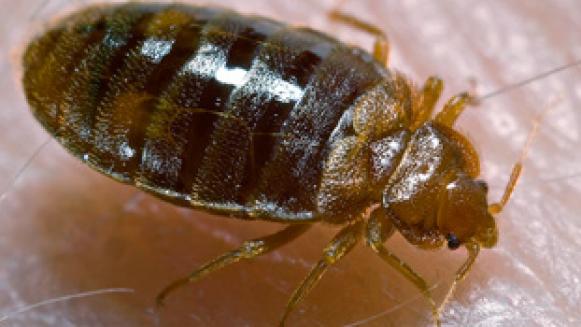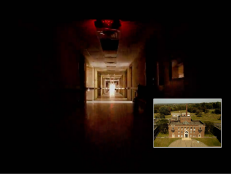Invasion of the Bedbugs

CDC
The old-time expression "Don't let the bedbugs bite" has taken on heightened meaning, particularly in the travel industry, where the resurgence of bedbugs has many travelers' skin crawling.
What Are Bedbugs?
Bedbugs, a classic travel pest, are small parasitic insects that feed on human blood. Bedbugs are not much larger than an apple seed and have a similar reddish-brown color. Baby bedbugs are colorless making them even more difficult to spot. While bedbugs are grounded with no wings, they move rather quickly on 6 tiny legs. And they are hearty suckers, as they can live for up to 1 year without a single meal.
Bedbugs were nearly eliminated in the 1940s with the help of the super-powerful, and now banned, chemical DDT. However, they have made a comeback in recent years, showing up in hotels, hospitals and other public places. Researchers have yet to pinpoint exactly why these bugs are back, and while far-reaching theories have purported everything from the fall of the Berlin Wall to the increase in foreign travel, many scientists simply admit that they still don't have a solid explanation.
As their name implies, these bloodsuckers make their homes in beds, but also in couches, clothing, and the seats of airplanes and trains. They crawl out of crevices to feed on the blood of the soundly sleeping. These painless attacks generally go undetected until a skin rash appears.
How to Avoid Bedbugs
As the scientific community does their work, travelers need to do a bit of their own to learn about bedbugs and, hopefully, avoid coming into contact with them on their next journey. But that's where things get even more complicated--these pesky vermin aren't keeping things in the bedroom. Reports of bedbugs are coming from movie theaters, buses, trains, stores and even office buildings.
Bedbugs are on the rise in some cities, including Cincinnati, OH, Columbus, OH, and Chicago, IL, according to a study by the Daily Beast and Orkin Pest Control. These critters are impartial when it comes to cleanliness and are just as likely to appear in the tidiest hotels and bedrooms. Here are a few hints to follow when traveling to decrease your chances of a late-night encounter with the bloodsuckers.
If you're staying in a hotel, inspect the mattress and headboard for dark brown spots and stains from bedbug excrement. Pull the mattress out from the wall and use a flashlight to search around any cracks or crevices. Then pull back all bedding down to the mattress and box spring and search for any small specks of blood or dark brown stains that are evidence of the presence of bedbugs. The next morning, check the sheets for the same spots to be sure you weren't a bedbug host during the night.
Isolate your luggage and belongings from any potential sources of bedbugs. This means keeping your clothes and suitcase off of the bed, couch and other soft surfaces. The metal luggage rack comes in handy for luggage storage. Some experts recommend storing your luggage in the bathroom. The most extreme measure is also the most protective--travel with large garbage bags, and store your luggage inside. This prevents you from returning home with any carry-on passengers attached to you bags and belongings.
Inspect your belongings when returning home from a trip, and avoid dropping your suitcase on your bed or laying clothes on soft surfaces until you have looked everything over to be sure you don't have any stowaway bedbugs.
Do some research before you book your hotel or rent a new apartment. While reviews on websites can be helpful, keep in mind that anonymous reviews aren't always impartial and use your judgment. The Bed Bug Registry is a free public database reporting bedbug findings in hotels and residences around the US and Canada.
Diehard thrifters and antiquers should avoid purchasing used upholstered items, including mattresses, couches and other furniture as well as bed frames with lots of crevices, which make perfect hiding spots for bedbugs.
What to Do If You Get Bedbugs
The bedbug's bite is difficult to distinguish from other bug bites, though the cluster of small, raised red bumps are generally found in clusters on the hands, arms, face and neck. For some victims, the rash is itchy and uncomfortable while many have no reaction at all. A few people may experience an allergic reaction to the bedbug's bites which requires a physician's treatment.
If there's any good news to be found if you've been attacked by bedbugs, it is that they don't harbor any disease. Unless you're one of the few people who suffer an allergic reaction to bedbugs, your physical symptoms should go away shortly with little physical pain and no treatment. Contact your doctor if you believe you've encountered bedbugs for advice and a possible prescription for ointments or creams to reduce itching and pain. And don't be surprised if you have trouble sleeping--it's not uncommon to suffer the emotional impact of a bedbug experience.
If you encounter bedbugs in a public place, such as a hotel, ask to speak to a manager immediately to discuss not only getting a new room, but assistance treating your belongings to ensure they don't spread. The same applies to bedbugs in your home--let your landlord know immediately. You may also send details of your experience to the Bedbug Registry to share the news with others who are looking to travel or move. Some states, including New York, are creating bills that require landlords to disclose bedbug infestations to the public.
The unfortunate news is that the clean-up process is intensive to end a bedbug infestation. It's going to take a lot of vacuuming, hot water and extreme temperature (freezing or heating bagged infested items) to clear out the beasts. You may need to discard furniture, depending on how serious the outbreak is in your home. To fully eradicate these unwanted houseguests, contact your local exterminator or find a referral from the National Pest Management Association.



























.jpg.rend.hgtvcom.231.174.suffix/1674758726773.jpeg)











